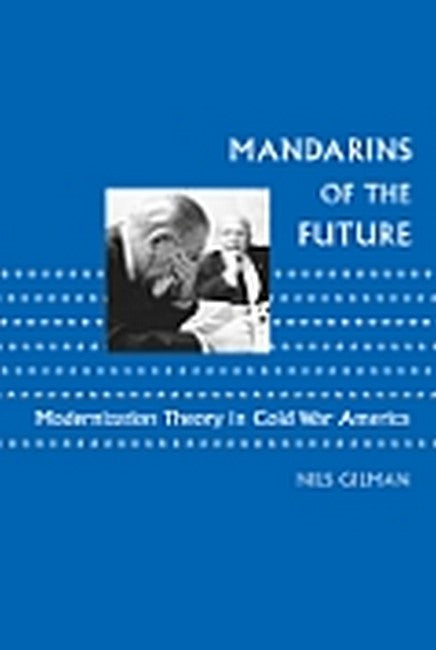''Although a number of important works have appeared in the last few years on modernization theory and American foreign policy in the 1960s, Mandarins of the Future will be definitive, perhaps for decades to come. Gilman provides not only the fullest history of modernization theory, and its linkages to actual government policy formation, but he explores in depth a fascinating slice of American intellectual history in the 1960s and early 1970s. His analysis of foundation and academic politics and their interface with government agencies is detailed, original and compelling.''Michael Adas, Rutgers University''The American engagement with 'modernization' is one of the most important episodes in the intellectual, political, and diplomatic history of the Cold War epoch, filled with cautionary tales for our own time. Gilman's sophisticated, clearly-argued, archive-based interpretation is a commanding contribution to our understanding of the terms on which the United States interacts with the rest of the world.''David A. Hollinger, University of California, Berkeley''The detailed analysis and broad-ranging explorations in Mandarins of the Future will interest scholars and graduate students in a variety of areas.''Johanna Bockman, Journal of Cold War Studies ''Intellectual fashions come and go, and this well-researched book artfully analyzes the rise and fall of one of the more powerful paradigms in postWorld War II American political scienceso-called modernization theory.''William B. Quandt, Ethics and International Affairs '' Mandarins of the Future both helps us understand a past paradigm in its historical context and offers insights for those seeking to comprehend the social world of today.''Daniel Geary, Journal of the History of the Behavioral Sciences ''Gilman's analysis is original, well-researched, probing, and provocative.''Walter Hixson, American Historical Review ''The author carefully surveys and explains modernization theory and how it shaped the U.S. postWWII foreign policy to contain Communism during the Cold War.'' ChoiceBecause it provided the dominant framework for ''development'' of poor, postcolonial countries, modernization theory ranks among the most important constructs of twentieth-century social science. In Mandarins of the Future: Modernization Theory in Cold War America Nils Gilman offers the first intellectual history of a movement that has had far-reaching and often unintended consequences.After a survey of the theory's origins and its role in forming America's postwar sense of global mission, Gilman offers a close analysis of the people who did the most to promote it in the United States and the academic institutions they came to dominate. He first explains how Talcott Parsons at Harvard constructed a social theory that challenged the prevailing economics-centered understanding of the modernization process, then describes the work of Edward Shils and Gabriel Almond in helping Parsonsian ideas triumph over other alternative conceptions of the development process, and finally discusses the role of Walt Rostow and his colleagues at M.I.T. in promoting modernization theory during the Kennedy and Johnson administrations. By connecting modernization theory to the welfare state liberalism programs of the New Deal order, Gilman not only provides a new intellectual context for America's Third World during the Cold War, but also connects the optimism of the Great Society to the notion that American power and good intentions could stop the postcolonial world from embracing communism.

